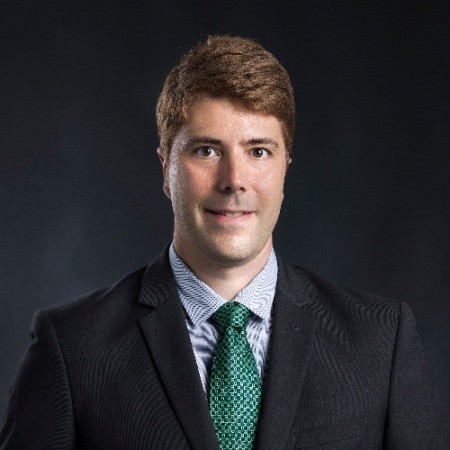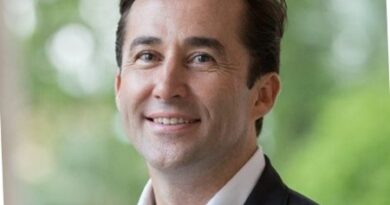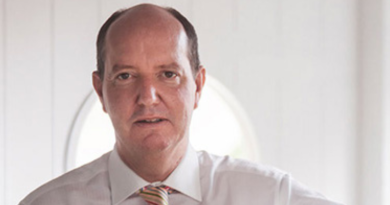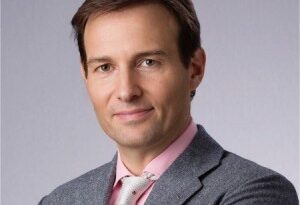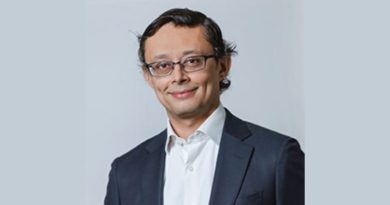Fund manager interview: Cedric Rimaud on the greening of finance
The greening of the financial sector has got hedge funds and other alternative investment managers and investors taking a closer interest in this fast-developing sector. HFC’s Stefan Nilsson decided to find out more and had a chat with green finance specialist and fund manager Cedric Rimaud in Singapore.
Cedric Rimaud has a long career and deep knowledge of corporate bonds and green finance. He has worked as a fixed income portfolio manager, credit trader and credit analyst and has specific expertise in emerging markets. Having previously worked at firms such as Credit Suisse, Citigroup and JP Morgan, he is now managing the Earth Wake Green Impact investment strategy at First Degree Global Asset Management and is the Singapore representative for the Climate Bonds Initiative.
You manage the Earth Wake Green Impact strategy. What can you tell us about this investment strategy?
Earth Wake is a new initiative to create an investment strategy focusing on green and social bonds in Asia and the Pacific. Why does it matter? Because green and social bonds are, simply put, superior types of investments. While offering a market return, they also deliver on specific objectives that will protect these investments in the long run, by going into sectors that are less likely to be downgraded due to the negative effects of climate change. This is mostly private or public debt: the capital put to work will be repaid at maturity while offering a predictable payment each year. If you look at the profile of emerging markets high yield debt in the context of a diversified portfolio, you will see that its risk/return profile is superior to a lot of other forms of investments. In addition, we get to provide capital for projects that make sense for people and for nature. This is the best opportunity out there. If you look at how these securities have behaved in the markets’ repricing this year, you will see that they have outperformed by being in sectors that have been less impacted by the pandemic. As climate change unfolds, we will see these securities outperform in the long run.
Tell us about the Climate Bonds Initiative that you are involved in and why it matters.
Climate Bonds Initiative (CBI) is a UK-based non-for-profit acting on behalf of investors to develop a credible green bond market globally. I am their representative in Singapore, acting as the ASEAN Commercial Manager. Through this role, I am supporting various initiatives, such as awareness-raising events – conferences, workshops, webinars, etc. – and acting as the go-to person for anyone within ASEAN looking to get more information on green bonds. CBI is delivering certification for new green bonds issued in the market against its Climate Bond Standard, relying on a science-based taxonomy developed for various sectors of the market. This creates trust among investors that the projects funded through the issuance of green bonds are aligned with the objectives of the Paris Agreement: to reorient financial flows towards assets and activities that will limit global warming well below 2 degrees Celsius against pre-industrial levels. This avoids “greenwashing” and underpins the strong growth of the green bond market.
How can the global investment industry avoid greenwashing? Is the recent increase in interest in ESG attracting more greenwashing or is it driving the industry to become more honest and professional?
Green investment is about resisting the changes in our climate. This is grounded in scientific evidence and includes a reduction in carbon emission, or greenhouse gases, in our atmosphere. Science tells us which assets and technologies have a limited effect on carbon emissions: we want more of these. Science tells us what activities are responsible for carbon emissions: we want no more of these. This is why standards exist that specify what these assets and technologies should be. Investors need to demand the highest standards for their investments. The Climate Bond Standard delivers this, as well as the EU taxonomy, currently being developed.
Obviously, proper green investments can be great from a human and environmental point of view, but what about the investment case? Do green bond investments stand up to scrutiny purely as a financial allocation?
Totally, they are investments in promising sectors of the economy, which will outperform in the long run: renewable energy, electric cars, low-energy buildings, railways, water infrastructure, waste management systems, sustainable agriculture, etc. They avoid sectors like fossil fuels, like coal, oil and gas, mining, airlines, diesel-powered automobiles, etc., which are sectors that will see a radical shift, additional costs, if not an outright downgrade. We just witnessed the impact of the COVID-19 pandemic on the airline industry. Similar things are likely to happen to these “brown” sectors as well, although maybe in a more protracted fashion.
We have a shift in US leadership coming up on 20th January with a President-Elect who is already showing much more interest in global climate initiatives than the current US President. How important do you think Biden’s election win is for global climate change initiatives?
This is very significant, as the US bond market is the largest, the deepest and the most diverse bond market globally. It is already the largest country, in terms of green bond issuance, but we expect this trend to accelerate. Climate change is a global issue that needs the cooperation of all countries. China and Europe are already well embarked on the process of greening their economies. The US, through the actions of its companies, has already started. Renewable energy is already employing a lot of experienced professionals in the US, this will continue, as well as in other sectors as well. At least, we have a global theme that is bringing nations closer together. This is a good thing for the stability of the world, and therefore for investments. The greening of the financial sector is bringing more disclosure as well, which investors should welcome, as it means that they are better informed on what the ultimate use of the investments is.
You are based in Singapore. How does Singapore compare to other Asian financial centres when it comes to green investments?
Singapore is already the largest market in ASEAN for green bonds and loans, but it is mostly focused on green buildings. Other ASEAN markets, like Thailand, the Philippines or Indonesia, have seen some issuance in other sectors. We have seen some Asian issuers come to Singapore to issue green bonds here as well. Singapore benefits from a very solid legal framework, high ethical standards and English Law. It also hosts large domestic, regional and international investors with large pools of capital to deploy across various types of assets. We expect that Asian capital will welcome opportunities to invest in the region. The reserve of potential growth in South East Asia remains very exciting. There will be 800 million consumers by 2050 with rising purchasing power, this cannot be avoided. Singapore stands right in the middle of it. It has got a very solid foundation in terms of intellectual capital and is opportunistic in attracting the best expertise from around the world. Comparing with other financial centres is difficult, as each location has its own specific advantages. But Singapore is a place that will continue to strive, in our view.
This past year we have seen many changes to travel, work, socialising and so on due to the global pandemic. Some of these forced changes have had a positive climate impact. Do you think that this will last or will things quickly turn back to old ways once the pandemic gets under control?
I think that nature has definitely taught us a lesson this year, with this crisis. It has forced us to reflect on how our economies are organised and “sustainability” has become the buzzword in all corners of society. This is also advocated by the most important segment of our own: our young people, whose future depends on our actions today more than ever. We are already adapting to the new world and our connected economies are taking on a new meaning. In my view, social distancing has actually brought people closer together. In our business, we have held webinars with up to 500 people connected at a single point in time, with many more listening to the recording. This is difficult to achieve the same in a physical setting. Yet, having physical meetings will continue to be important. We are social beings after all. To me, old ways are already adapting to new ways, as we have done since the caveman. This is nothing new. Out of this crisis is a new attitude emerging. We see it in the investment world. To think that investing with objectives outside of a financial return would become a winning value proposition would have been, let’s say ten years ago, unthinkable. We are now at the dawn of a new decade, with the United Nations calling for the Sustainable Development Goals to deliver positive change by 2030, while nations like Japan or Korea announcing that they will become carbon neutral by 2050 and China by 2060. This means new business sectors to invest in. This is very exciting!

